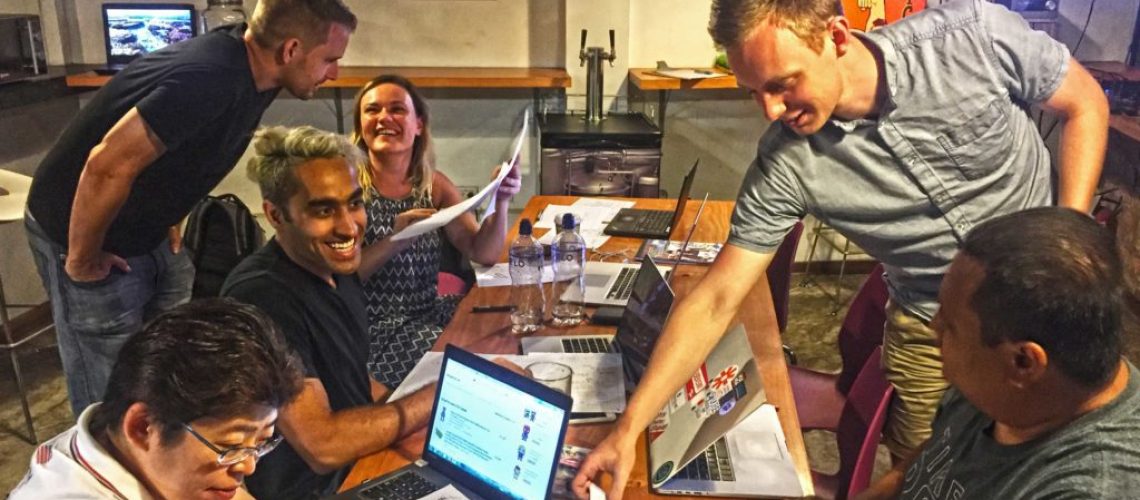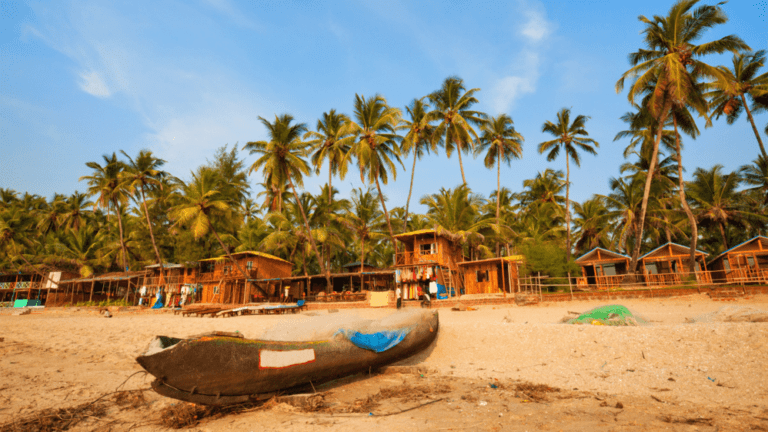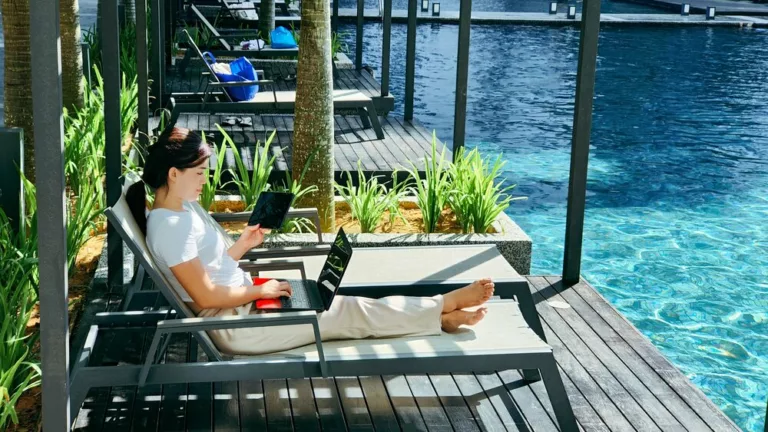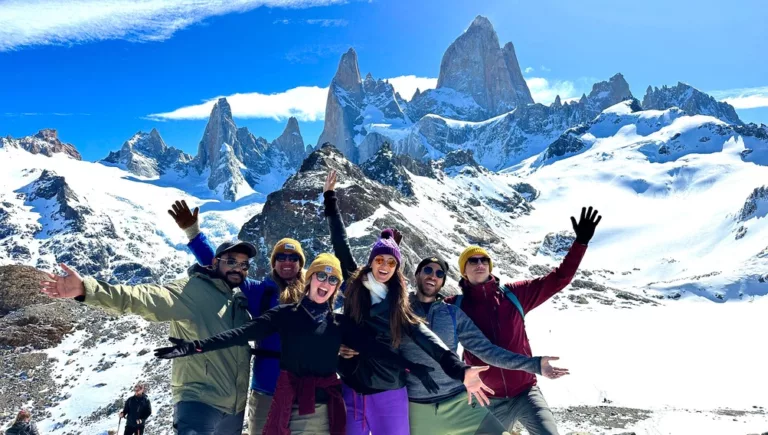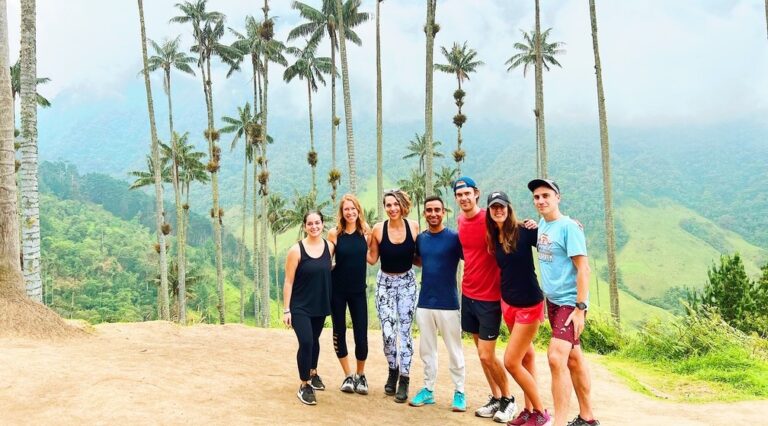This serial entrepreneur thinks Cebu could become the next hub for social enterprise

Ravi Agarwal is no stranger to the startup game.
He started his first Internet company in Boston in 1997, and has since had several successful exits, including an IPO. After a few years in San Francisco, he wanted more meaning in his life, and took off on an extended trip throughout Africa and Southeast Asia.
Eventually, he landed in Cebu, a coastal city in the Philippines. This is where Ravi has decided to build EngageSpark, a company focused on poverty alleviation in the developing world.
Last week, he walked me through the decision and told me about why he and his partner think Cebu could become the world’s leading hub for social enterprise.
First, tell me a little about your business.
We build software that helps governments and NGOs set up SMS and phone campaigns really easily. Last year, we tested our product in the market with an NGO called Mercy Corp. We sent out educational material on financial literacy to 25,000 people here in the Philippines.
Why did you pick Cebu?
Like any good engineer, I created a weighted spreadsheet to evaluate different places to start a social business. It ultimately came down to 6 cities in Indonesia and 3 in the Philippines.
The 4 criteria I had were:
- The country needed to have a high density of poverty (meaning concentrated in cities, not spread out in rural areas).
- There needed to be good infrastructure — roads, hospitals, electricity, Internet, etc.
- There had to be an available talent pool.
- It had to be a good place to live.
In Africa, poverty is spread out and hard to reach. On the other hand, the Philippines has a population of 100 million people, and out of that, maybe 60 to 70 million live in poverty, or at least are lacking opportunity.
Indonesia was also a good fit, but only 20–30% of developers there speak English sufficiently well. Since Indonesia is so big, there are a lot of multinational firms there, so salaries are crazy. In the Philippines, everyone speaks English, so hiring is easy, and it’s easy to get around the country outside of work.
After looking at those 4 criteria, Cebu was the clear winner.
Where else did you look?
In the Philippines, we were also looking at Manila and Davao.
Manila has too much pollution and crime. Every time you get in a taxi, you have to haggle on the price. These are small things, but over time, they add up emotionally. I also love the outdoors, and in Manila, you have to drive for several hours to find good outdoor activities.
In Cebu, you can start hiking in 20 minutes, can be diving in the water in less than an hour, can be kayaking / stand-up paddling in 40 minutes. Rock climbing is also just a few hours away.
Davao was actually pretty great — I loved it. It’s less crowded, safer, and more intimate. They have this “Punisher Mayor” who is really tough on crime, so you can leave your laptop visibly out in your car while it’s parked — you wouldn’t do that here.
But Davao just doesn’t have the necessary talent pool. Most people leave Davao to go to Cebu or Manila. It’s still a small city with fewer jobs.
What has your experience been like in Cebu over the past year?
Managing people here is different. One big thing we were advised about early on is not to criticize people publicly. If you make people lose face, they’ll quit. Critical feedback should be done in private. But you should praise in public.
On the whole though, it’s been good. There is a sizeable expat community here, and we’ve connected with them and other startups to help us have a soft landing. They referred us to lawyers, gave us advice, etc. Through those connections and advice, we were able to incorporate here for less than $1000 for everything — licenses, etc.
What has hiring been like?
Hiring junior talent is easy. Labor rates here are low — you can find a fresh CS grad for $300–400 per month. Hiring people with 4–5 years of experience is also doable.
There is a bit of a brain drain here though — talented developers often leave Cebu after 5–7 years of experience and get a job outside of the Philippines or in Manila.
One reason for this is that there is a culture in the Philippines of paying for your family members’ education. This is why out of a population of 100 million people, 10 million work abroad.
The tech community here is also quite young, less developed than in Manila. That’s one of the reasons we started The Tide, our coworking space. We wanted to create a meeting space for the tech community to help it grow.
Still, with all the above, our burn rate is probably 20x less than it would be in the U.S.
What is your quality of life like in Cebu?
Cebu is a nice city. It has all the modern amenities.
I’ve lived in remote places, like Africa, but after a year or two, it’s nice to be able to go to a nice restaurant or to have access to a mall — I mean the mall here even sells the same Sonicare electric toothbrush I got in the States. Even though you’re in the developing world, you don’t feel like you’re living a rough life.
For the most part, you can also create your ideal lifestyle here.
I care about my health, so I have a full time helper who comes to my place to clean, cook, run errands, pay bills, etc. I gave her some guidelines in the beginning and taught her about some foreign foods, like quinoa, but after that, she’s taken complete charge of planning and cooking healthy meals. She even learned how to make hummus. This costs a couple hundred dollars a month.
I also have a yoga instructor come to my place three times a week for a private yoga class. Here, this costs $10 — less than the cost of a group class in San Francisco.
The other nice thing about Cebu is the easy access to beach resorts. You can get a day pass for $25 dollars, which includes a buffet meal, and then spend the day sitting at the beach, jumping in the water, snorkeling, and doing some work.
What is the cost of living like?
We bring in fellows from the US and Europe, and we tell them that you can live well here for $10–15 per day (excluding housing).
The food here is very cheap. Western-oriented restaurants are $4–5 per meal, and local style restaurants are only $1–2 per meal.
To get around the city, Jeepneys cost about $0.20 and taxis cost $1.50 for most places within the city.
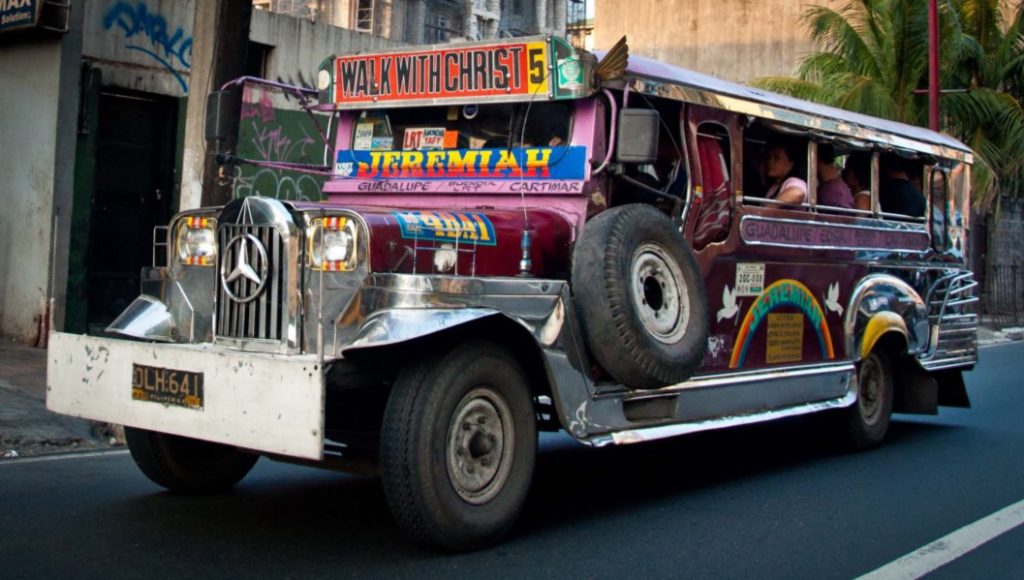
A Jeepney in CebuBeer is $1. And that’s at a bar. If you buy it at the grocery store, it’s like $0.60. So much cheaper than back home.
What is there to do in Cebu outside of work?
One of the best things about Cebu is the outdoor activities.
Diving here is awesome. You’ll see a ton of fish. I’ve seen a big school of barracuda, millions of sardines, like walls of sardines, and tons of other fish. There’s even a little airplane that’s sunk that you can dive through.
Snorkeling is good too. You can also rent kayaks or do other water sports like jet skiing, parasailing, wakeboarding, etc.
There are also mountains that are 20 minutes away. I’ve been exploring a number of the trails and have hiked up to this great waterfall. There aren’t marked trails, just paths used by the people who live there. You can’t really get lost, because people live in the hills.
Trail running and yoga are also getting big. There are over 100,000 business process and tech workers here in Cebu. They’re all newly-minted middle-class young people. They want to explore middle class hobbies, so they’re getting into running, mountain biking, yoga, diving, etc. All these things are getting big because they have all this disposable income — their parents wouldn’t even know what yoga meant.
What’s next for EngageSpark?
We’re just finishing up our platform for a wider beta release, and will start marketing it in January. Thus, we’ll start hiring more people on the marketing and customer service side, as well as continue to build out our development team.
We’ll also be expanding our Fellowship program, where we bring talented developers over from the US or Europe to work with our team and experience what it’s like to live and work in a developing nation.
What would you tell someone who’s thinking about moving to Cebu?
Do it.
You’ve got this huge density of poverty, good infrastructure, and a good talent pool, so it’s a great place to build products, test them out, and then scale them to other countries at a low cost.
It’s an ideal spot. There’s no reason why Cebu can’t become the hub for social enterprise in the world.
Want to check out Cebu or some other awesome spots in Southeast Asia? Join us for Hacker Paradise’s trip through Thailand, Bali, Vietnam, and the Philippines, starting February 2015.

